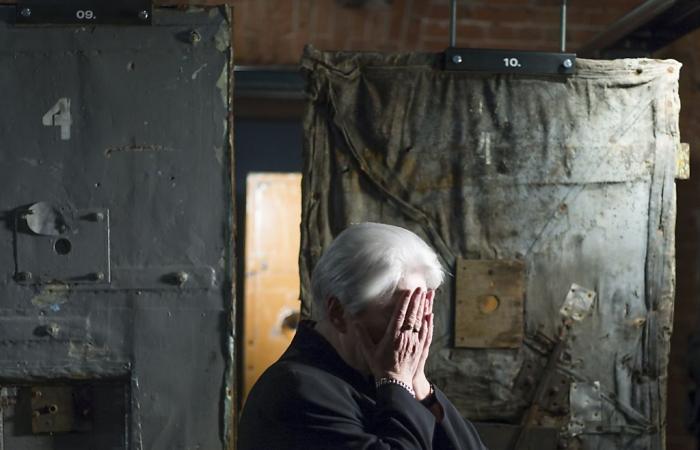The Moscow museum on the history of the Gulag, dedicated to the memory of Soviet repressions and the concentration camp system, has been closed ‘temporarily’ since Thursday. Officially for breaches of fire safety.
“The Gulag History Museum is temporarily suspending its work from November 14, 2024,” the museum announced in a statement.
Inspections have uncovered ‘fire safety violations’ which ‘present a threat’ to visitors, according to the museum, which does not specify a planned date for a possible reopening.
Website more searchable
The content of the establishment’s website was no longer viewable on Thursday, with only the announcement of the closure being available on the cover page as well as access to the online bookstore, AFP noted. Contacted by AFP, the museum administration declined to comment.
Created in 2001, this museum brings together numerous official and family archives, objects and photos that belonged to victims, ordinary people or celebrities such as the writers Alexander Solzhenitsyn and Varlam Shalamov.
History of Soviet camps
It houses a permanent exhibition dedicated to the history of Soviet camps from 1918 to 1956, as well as temporary exhibitions. Shows, concerts and conferences are regularly organized there.
The museum also houses a documentation center that helps visitors find information about their family members who were victims of Stalinism.
Stalinist crimes downplayed
In Russia, the figure of Stalin, responsible for gigantic repressions that left millions dead, is ambivalent. While Russian President Vladimir Putin occasionally condemns the excesses of Stalinism, the political line followed by the Kremlin is generally to downplay them.
The millions of victims of political repression are reduced to the bare minimum in the history textbooks. Stalin is firstly presented as a hero of the Second World War and as the assassin of Nazism, in a context of patriotic exaltation and glorification of the military power of the USSR, particularly since the attack on Ukraine.
The ‘return of names’
Those denouncing this approach fall into the crosshairs of the authorities. Memorial, the large NGO listing both Soviet repressions and those of the current regime, was classified as a ‘foreign agent’ and then banned at the end of 2021.
Memorial created the ‘return of the names’, an annual day during which citizens come every October 29 to list the names of victims of repression. But it cannot be held normally in Russia since 2020: the authorities cite the Covid pandemic to ban all gatherings.
On October 30, the Gulag Museum in Moscow organized a similar action: throughout the day, people read the names of people killed during the Soviet terror.
/ATS






